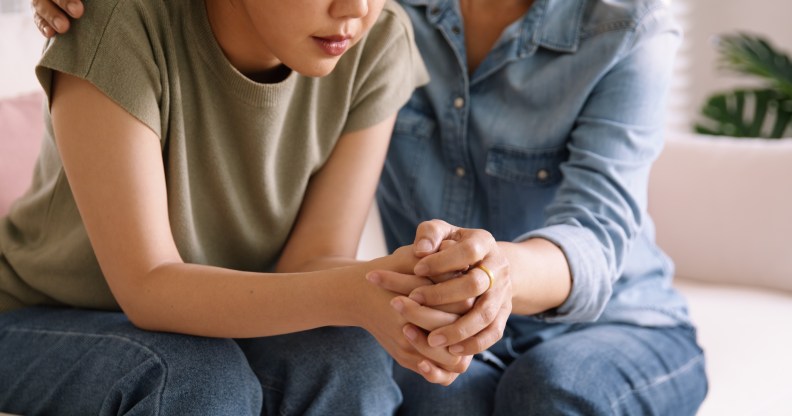LGBTQ+ Australians are three times more likely to have mental health issues, according to study

The new study marks a first for the LGBTQ+ community in Australia. (Stock image/Getty)
LGBTQ+ people in Australia are three times more likely to experience mental health issues compared to heterosexual and Cisgender people, a new study has found.
The study marks the first set of LGBTQ+ mental health statistics in Australia which compares LGBTQ+ Australians’ well-being to that of their heterosexual and Cisgender counterparts. The statistics found that those in the community are significantly more likely to experience a mental disorder, suicidal thoughts and self-harm.
Data from the Australian Bureau of Statistics showed that those in the country with diverse sexualities are three times more likely to have experienced mental illness in the past year, and four times more likely to have self-harmed, compared to the rest of the population.
Meanwhile, 70 per cent of transgender youth have also experienced mental illness.
Three-quarters of lesbian, gay and bisexual participants were found to have experienced a mental health disorder, such as depression or anxiety, throughout their life, compared to 42 per cent of heterosexual Australians.
Nearly 60 per cent of LGBTQ+ participants had experienced a mental health issue in the past 12 months, three times more likely than their heterosexual counterparts.
Meanwhile, 85 per cent of non-binary people reported having a mental disorder during their lifetime, compared to 45 per cent of men and 43 per cent of women. In the past 12 months, 80 per cent of non-binary people experienced mental illness, compared to 18 per cent of men and 24 per cent of women.
The study comes as the LGBTQ+ community in Australia is grappling with the tragic alleged murder of TV personality Jesse Baird and his partner Luke Davies at the hands of NSW Police Officer Beau Lamarre.
The police force has also vowed to “do better” for victims of hate crimes following a damning report, as police have been asked not to march in this year’s Mardi Gras parade in Sydney following the officer being charged.
LGBTIQ+ Health Australia chief executive Nicky Bath said such publicised events are often triggers for increased anxiety and distress. “There is [a] direct correlation between public discourse and the impact this has on LGBTQ+ people,” said Bath.
“There’s an unacceptable burden of poor mental health amongst LGBTQ people, in comparison to cisgender and heterosexual people … It’s important to [recognise] that the poor mental health we’re seeing is directly related to stigma, prejudice, discrimination and abuse that LGBTQ+ people have experienced and continue to experience. It’s not because of who we intrinsically are.”
Bath said the next step is to “tackle the ongoing stigma and abuse LGBTQ+ people experience” at a societal level, “so we can increase good mental health”.

